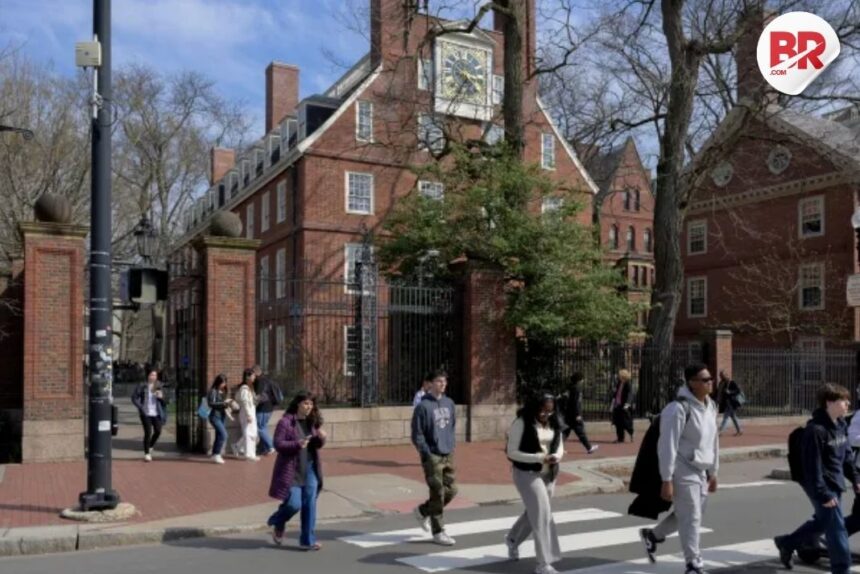
The Trump administration has taken strong action against Harvard University. On Wednesday, April 16, it threatened to stop allowing foreign students to enroll at Harvard. This came just days after the government froze more than $2.2 billion in federal funding and warned it might remove the university’s tax-free status.
Why is the Government Doing This?
The conflict started because Harvard refused to follow some of the Trump administration’s rules related to student admissions, hiring, and teaching. Former President Barack Obama supported Harvard’s decision, saying it was a good example for other universities standing up for academic freedom.

The Department of Homeland Security (DHS) said Harvard must give information about foreign students who may have been involved in illegal or violent acts. If it doesn’t, DHS will stop new foreign students from joining the university. It also canceled two federal grants worth more than $2.7 million.
Harvard is the first university to directly say “no” to these demands. Its president, Alan Garber, said in a public letter that the university will not give up its freedom or rights, even if it means losing federal support.
What Started This Conflict?
Trump promised during his campaign to stop government funding to universities that limited free speech. But the real spark came after a Hamas attack on Israel in October 2023, which led to war in Gaza. Many students in U.S. universities protested in support of Palestine. Trump said some Jewish students were being harassed and used that as a reason to crack down on campuses.
However, critics believe this is more about politics than protecting students. They say Trump is targeting universities that are more liberal and open-minded, especially the Ivy League ones.
What Has the Government Done So Far?
Since returning to office, Trump has taken several steps against universities:
- He signed an order to stop “pro-Hamas” activities and protests in colleges.
- A task force was set up in February to stop antisemitic harassment. It started checking ten universities, including Harvard, Columbia, NYU, UCLA, and UC Berkeley.
- In March, the Education Department warned 60 colleges that they could face consequences if they didn’t protect Jewish students properly.
- Columbia University was told it could lose $400 million unless it followed certain rules. It responded by making protests stricter and changing some of its teaching.
- Funding cuts followed: $4 million from Princeton, $1 billion from Cornell, $790 million from Northwestern, and $175 million from the University of Pennsylvania. Brown University might lose $510 million.
Read More: Trump Threatens to Ban Foreign Students at Harvard – What’s Going On?
What Did the Government Ask Harvard to Do?
On April 3 and 11, Harvard got letters with a list of things the government wanted:
- Change programs that the government said were biased, and include more diverse viewpoints.
- Ban protest masks and have fair rules for punishing students.
- Report any antisemitic behavior since October 2023.
- Stop using race or nationality as a factor in admissions and only accept students based on merit.
- Shut down DEI (Diversity, Equity, and Inclusion) programs, which the government claims create division.
Harvard President Alan Garber rejected these demands on April 14. He said the requests were illegal and violated the university’s right to free speech and independence. This led to the funding freeze and threats to remove its tax-free status, which would cost the university millions.
Harvard’s $53.2 billion endowment means it can survive without government funds for a while. Experts believe Harvard’s strong stand may encourage other universities to do the same.
Read More: Trump-Era Freeze Silences Harvard Labs: What $2.7M in Lost Research Really Means
Other schools like Columbia and Princeton have also started pushing back. Columbia is now negotiating with the government but says it won’t give up its freedom. Princeton’s president said he supports Harvard and called Trump’s actions the biggest threat to universities since the 1950s.
So far, no university has sued the government directly, though Brown, MIT, and others have filed a case against a cut in research grant money from the Energy Department.












